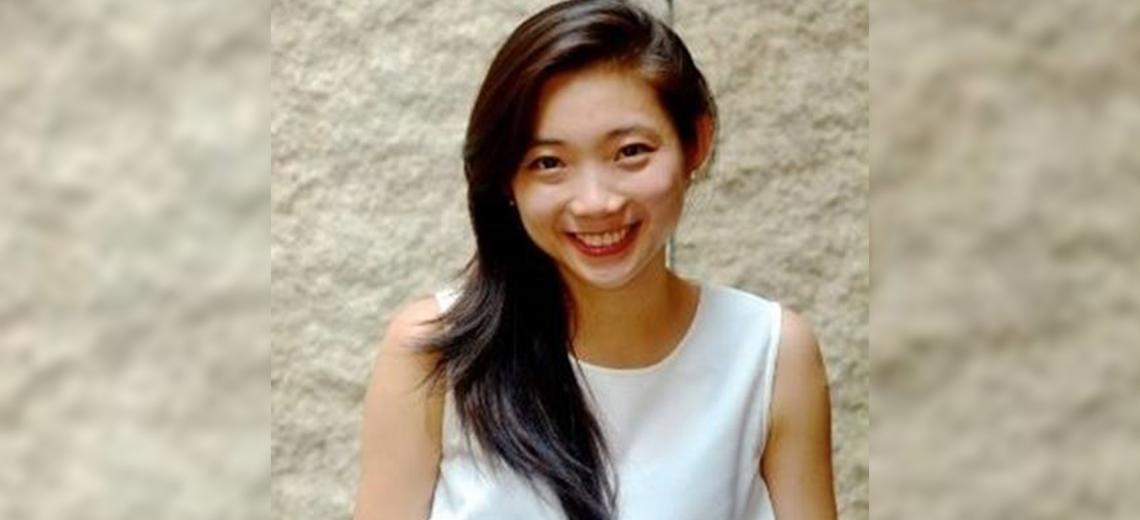
6 minute read
Since graduating from the ANU College of Business and Economics (CBE) with a Bachelor of Commerce, majoring in Accounting and Finance, Rachel Lau has travelled the world in various capacities and led diverse teams. She is currently the Co-founder and Managing Partner of RHL Ventures, a multi-family private investment firm that focuses on ASEAN-linked start-ups as well as small and medium sized companies across Southeast Asia.
In addition to her current role, she is also the President of the Malaysia Gymnastics Federation, a member of the Board of Directors at GNC Holdings and a Country Chair of Global Dignity, a renowned global non-profit organisation.
Rachel shares with us her sharp, instinctive responses to what it’s like to be a business owner, the fate of start-ups in Asia post COVID-19 and what she gained from her CBE degree.
Q. Can you tell us about your career path and what led you to the role you're in today?
It was a relatively simple path. There wasn’t a lot of career planning, but rather seizing the opportunity when it came along. I was young and didn’t have a lot of fear.
I worked in large financial organisations in Hong Kong, Australia and the US before coming back to Malaysia to start up a private investment outfit. RHL mostly invest in start-ups and fast growth companies in South East Asia, capitalising on the highly educated generation that SEA had never seen before. The previous roles were all in public equity and debt, mostly analysing companies and deciding when and how to invest institutional client money.
Q. What drove your passion in equity investment?
I fell into equity investment as a job. I interviewed with the Chief Investment Officer at ING and he convinced me it was the best job on earth. He was right. I am a curious person and love asking questions. Equity investment is as much about learning new things and being open minded to new ideas as it is about investing. It suited my personality, which was looking for innovation and challenging the status quo.
Equity investment is as much about learning new things and being open minded to new ideas as it is about investing.
Q. Many organisations have warned about the bleak outlook of the global economy post COVID-19. What is your view on the opportunities and challenges for start-ups in Southeast Asia in the next five years?
There will be less liquidity for start-ups, but I believe the best will still be able to raise capital. There will be a focus on sustainable margins, growth and unit economics, and investors will be more risk-averse given the high profile we have seen of late.
Q. Apart from managing RHL Ventures, you're involved in a number of boards and not-for-profit organisations. What is your leadership style and how do you adapt it across these diverse contexts?
Honesty, transparency and being open-minded. New and bold ideas are encouraged and current ways of doing something are constantly challenged and put to the test – that’s how we innovate and grow.
As a young leader, I am bored of establishments and being told what to do, or what I am supposed to do, or worst still, who I am supposed to be. I am restless, and constantly wonder what’s next?
New and bold ideas are encouraged and current ways of doing something are constantly challenged – that's how we innovate and grow.
Q. How did your degree at CBE prepare you for your career?
It helped me develop critical thinking skills and new ways of looking at issues.
Q. What personal attributes are key to a successful career in your field as a venture capitalist?
Curiosity, being open-minded and constantly wanting to learn about something new. The lack of fear of failing while taking calculated risks. Someone once told me I am too smart, too ambitious and too driven. I would like to say, I am smart, driven and fearless. Never be afraid of being judged and boxed into stereotypes.
Q. How can students make the most of their volunteer experience in their job applications and interviews?
Internships are extremely useful to learn about a company’s culture. Don’t worry about money, just look for experiences as much as you can.
Q. What is your top tip to current students who would like to run their own business one day?
Solve a problem that exists in the world – that’s the best sort of businesses that will have a lasting impact.
The ANU College of Business and Economics offers an extensive range of specialised programs. Click here for more details.
